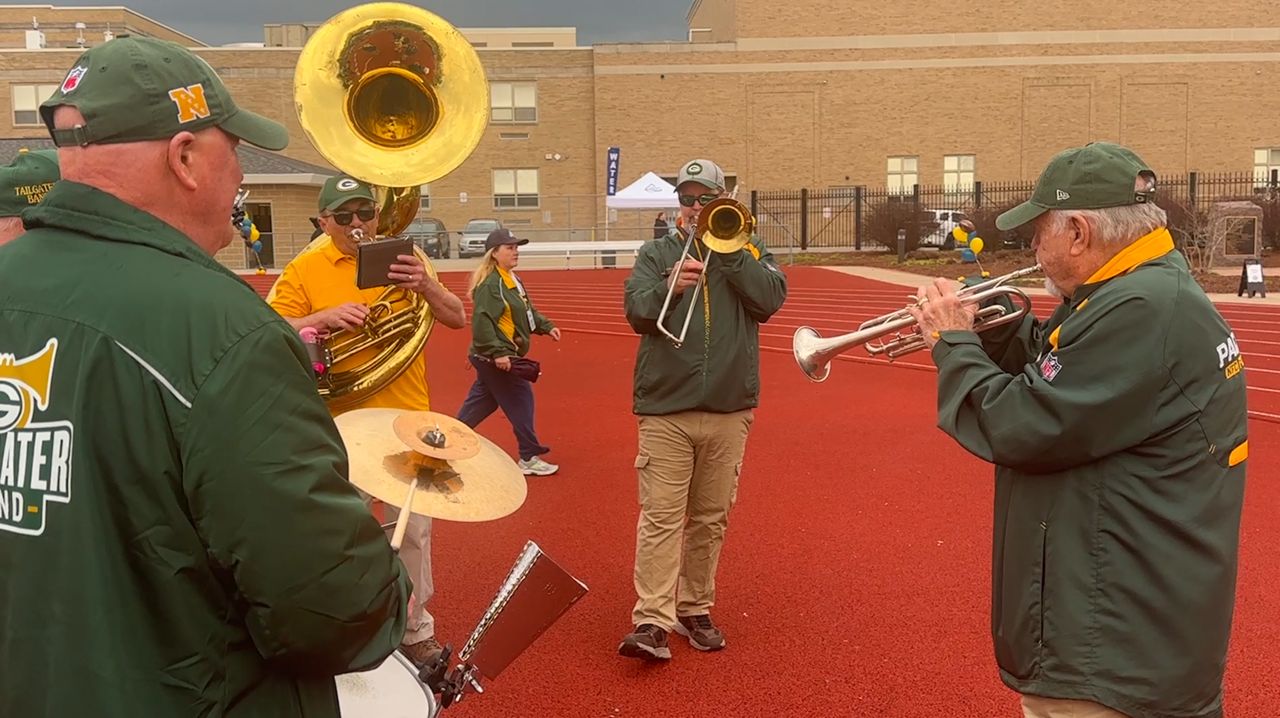SHEBOYGAN, Wis. — An organization that trains dogs to help children with autism all began with two friends that worked at Pet Smart. The group is called Pawsitism.
“We’ve always had dogs in common,” said Rebekah Hintzman, co-founder and lead trainer at Pawsitism.
Both with backgrounds in dog training, Hintzman and her friend joined forces to establish Pawsitism. The nonprofit trains autism assistance service dogs to work with families and eventually, it pairs a dog with a child in need.
“They’re an incredibly underserved community and we really wanted to help them,” said Tamara Pool, co-founder and board secretary at Pawsitism. “I have a nephew with autism and I always tried to find different things to help him.”
The organization trains each dog at 8 or 9 weeks old. They undergo 18 months of further training to ensure they can effectively assist children with a variety of tasks. The mission is made possible by help from volunteers.
“It all depends on the breeders that are able to donate to us and the funding we can get to help raise these guys because it costs anywhere from $50,000 to $75,000 to raise a service dog and have them fully trained,” said Pool. “We definitely can’t ask for that from families that we are providing service dogs to.”
Pawsitism asks each family to raise $6,000, which goes directly back into the program, the co-founders said.
Alyssa Hink’s son, Dane Cruz, applied last year. The family is waiting to be matched with a dog. The process can take a while to ensure the bond between the dog and child is strong.
“My son is non-verbal autistic,” said Hink. “He got the diagnosis when he was 3 and I am just trying to find different opportunities to help him be successful in public, be able to be involved with everyone else around him and kind of just feeling comfortable.”
Hink hopes for a dog trained in tethering to provide safety and stability for her son.
“He is a runner, so having a dog that can tether him and be there with him to support him for safety purposes is one of the biggest things we are trying to look for,” she said.
Pawsitism specializes in training dogs for such situations.
“A huge thing is what we call tethering and anchoring, so they are connected to the dog and the parent holds the leash,” Pool said. “At that point, if the child tries to bolt, the parent says ‘anchor’ and the dog plants all feet and will not move.”
Since last year, the number of service dogs and families looking for service dogs has doubled within the organization. This has prompted Pool and Hintzman to seek more volunteers to assist with training and fundraising.
“There are a lot of dogs to be trained,” said Pool. “We’re always trying to bring in more dogs, so we need help with the training. We have a training curriculum, but we don’t have the people to help us do the training.”
All dog training is done through Ruff Academy Real Life Dog Training in Sheboygan, which is run by Hintzman. Currently, Hintzman and one other volunteer handle all training duties.
“If we have more trainers, then this trainer can take a dog and do these different things, and this trainer can take a dog and do these different things,” Hintzman said. “They’re just going to get out more, be able to do more, and it’s also going to make them better dogs to help the families.”










